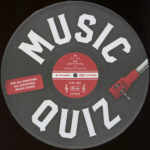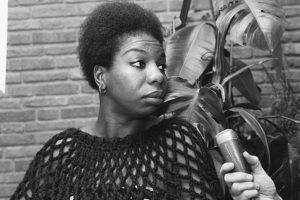Baseball can be used to explain just about anything.
Jerron “Blind Boy” Paxton presents a problem that somebody who runs a music blog runs into once in a while. It’s the too many outfielders problem (as opposed to the Bobby Murcer problem*, which Hillary Clinton had). Suppose a team has three great outfielders, all capable of excelling in an everyday role. One is hurt and won’t be able to play for half the season. Management responds by getting a fourth good outfielder to fill the void. But, ask the reporters, what happens when the star returns? Who sits? The manager smiles and responds that at that point indeed the team will have too many good outfielders and that’s a problem, but a good one to have.
So what does this have to do with Blind Boy Paxton? It’s simple: Every video I watched is great. Each time, I said to myself, “This is going into the post.” I ended up with quite a list. But I can only use two. So it’s a problem, but a good one to have. It’s the too many outfielder problem. I last ran into this problem with Ry Cooder. It’s not just that the musician is great – there are plenty of great musicians — but that there is a lot of great video of that musician doing his or her thing.
Watching video of Paxton is a bit discordant. The video and audio is contemporary and in all cases very well produced. The music itself, though, is what we generally experience as scratchy and muffled hundred year-old tracks from the earliest days of recording technology.
This is how The Wall Street Journal’s Will Friedwald describes Paxton (via Wikipedia): Paxton, he wrote, is “virtually the only music-maker of his generation — playing guitar, banjo, piano and violin, among other implements — to fully assimilate the blues idiom of the 1920s and ’30s, the blues of Bessie Smith and Lonnie Johnson.”
In Paxton, things have come full circle. Once upon a time, great acoustic blues and country musicians took traditional songs and recorded them for posterity. They also wrote their own songs, of course. Years later, the folk folks and early rockers reinterpreted those songs. “Cross Roads” (Robert Johnson/Cream), “I’m So Glad” (Skip James/Cream) and Statesboro Blues (Blind Willie McTell/Allman Brothers) are three of many examples.
Paxton – whose first name is Jerron — does no reinterpretation. Or, rather, his interpretative choice is to play the songs as closely as possible to the originators. It’s as if the music has come full circle. I truly believe that if Mississippi John Hurt or Blind Boy Fuller walked into the room, they would feel right at home. It’s refreshing.
Here is the start of an affectionate profile at a great looking site called Acoustic, Folk, and Country Blues from Traditional to Modern:
Jerron Paxton is truly the living embodiment of the true blues in the 21St Century, but he plays it all in the true songster tradition: ragtime, hokum, old-time, French reels, Appalachian mountain music and blues and more – and whatever he plays sounds great.
Wikipedia says that he was born in the Watts section of Los Angeles in 1989. His mother’s side of his family is Choctaw.
I highly recommend “No More the Moon Shines on Lorena,” which is above. Paxton’s intro is by turns funny and deeply heart felt. His playing – on a banjo he says was made in 1848 – is amazing. Most importantly, the song – in which a slave describes the loss of his partner – is a sad statement on the inhumanity of the institution. Boiling it down to one simple story is highly affecting. It’s fascinating that there is a version of the song on YouTube from The Carter Family who, of course, were white.
Below “Candy Man Blues.”
* For non-baseball fans, Bobby Murcer was a very capable centerfielder for the Yankees in the 1960s and 1970s. Unfortunately for him, he followed Joe DiMaggio and Mickey Mantle in that role. He even was from the same state (Oklahoma) and signed by the same scout as Mantle. Murcer—who by all accounts was a terrific guy—suffered for his career by the comparisons. Clinton followed Barack Obama and her husband as Democratic nominee for president. She was a good enough politician—as Murcer was a ball player – but obviously no Bill or Barack.


















Recent Comments